[Zoom In] Key Figures that Represent the Sookmyung Research Institute of Humanities
- Views 8381
- Writer 커뮤니케이션팀
- 보도일자 2020-07-06
|
Let's take a closer look at the Sookmyung Research Institute of Humanities, a research institute loved by not only Sookmyungians but also the public for its diverse topics that transcend regions and generations.
What does 2017 mean to the Sookmyung Research Institute of Humanities?
This is the year when the Sookmyung Research Institute of Humanities was born.
With the establishment of the Sookmyung Research Institute of Humanities, 3 research teams called the Science Technology Humanities Team, Transnational Humanities Team, and Yongsan Humanities Team were created. These teams were established based on 3 keywords: "creativity, traverse, and diffusion.”
The Sookmyung Research Institute of Humanities has been conducting various activities such as 6 regular academic conferences, 14 humanities weeks, and 13 academic lectures.
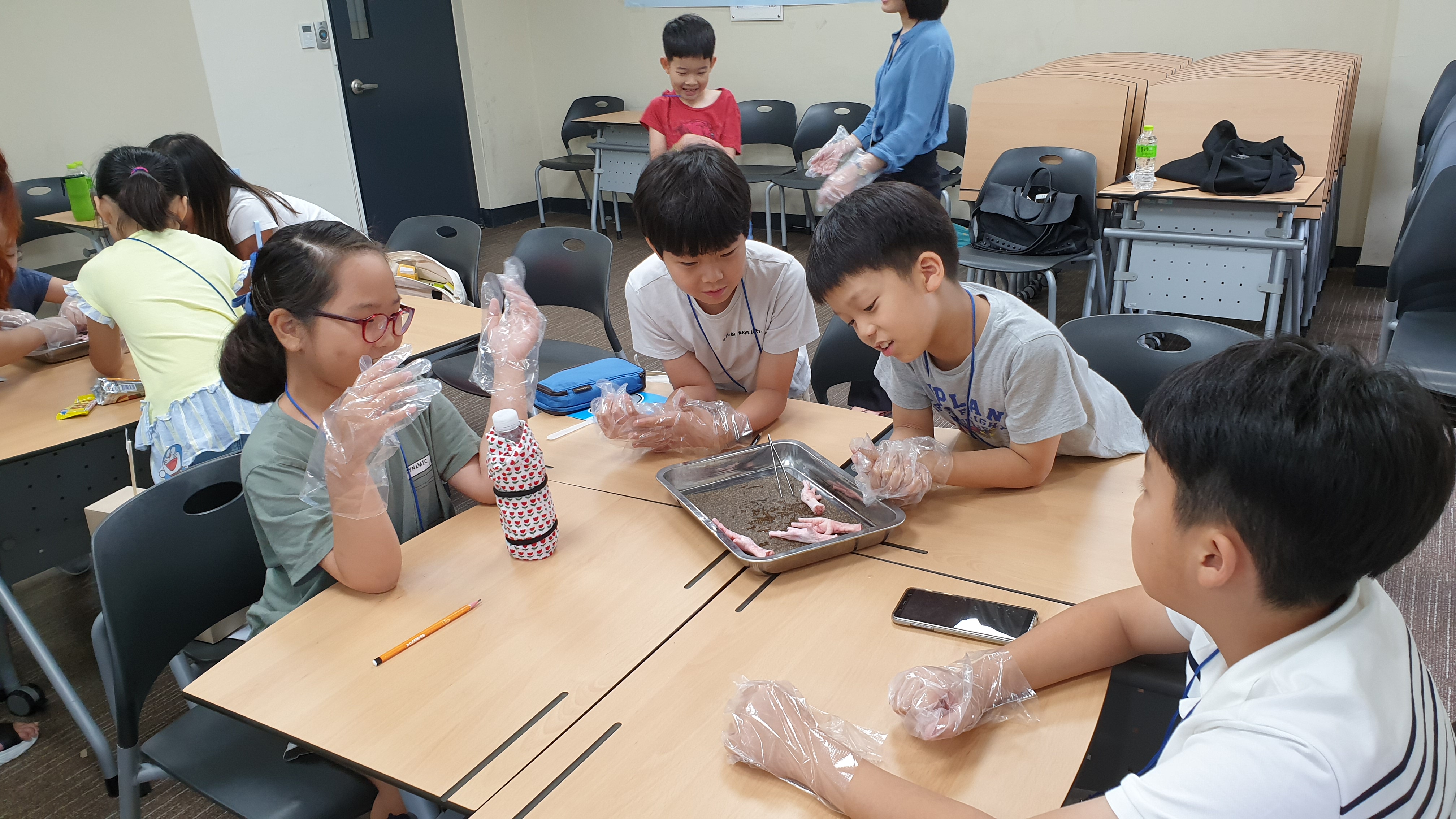

<(FromTop) Children Humanities Camp and Cheongpa-gil Tour Program>
What was the 1 (first) event of the Sookmyung Research Institute of Humanities?
The first event of the Sookmyung
Research Institute of Humanities, which opened in 2017, kicked off with the
lecture by Professor Se-jun Kim of the Division of Culture, Tourism &
Hospitality Management, under the title
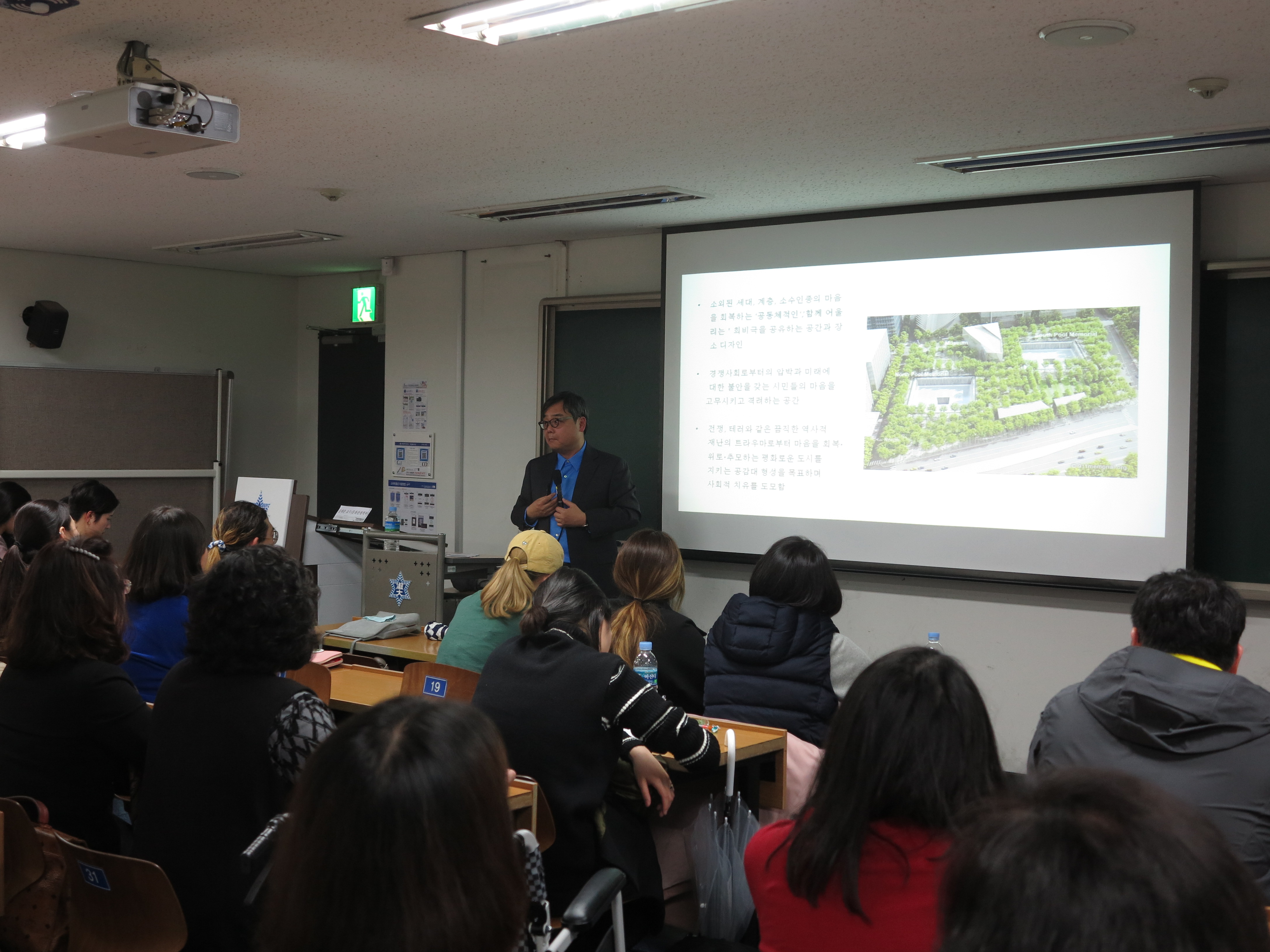
<Special lecture by Professor Se-jun Kim of the Division of Culture, Tourism & Hospitality Management>
In the second half of the special lecture, a talk was given on the necessity of healing from the trauma of the city, with the goal of being a “resilient city.” While looking at the cases of foreign countries where the cities were restored, future plans to create a city that is physically, emotionally, and culturally resilient were also discussed.
Selected for the Human City Project worth 480,000,000 won
The Sookmyung Research Institute of Humanities has been making steady efforts and achievements in the social practice of humanities for the community and the general public. The Sookmyung Research Institute of Humanities, which was selected in 2017 for the Human City Project conducted by the Ministry of Education and the National Research Foundation of Korea, received approximately 480 million won in funding over the past three years, leading the way in reaching out to the community through humanities.
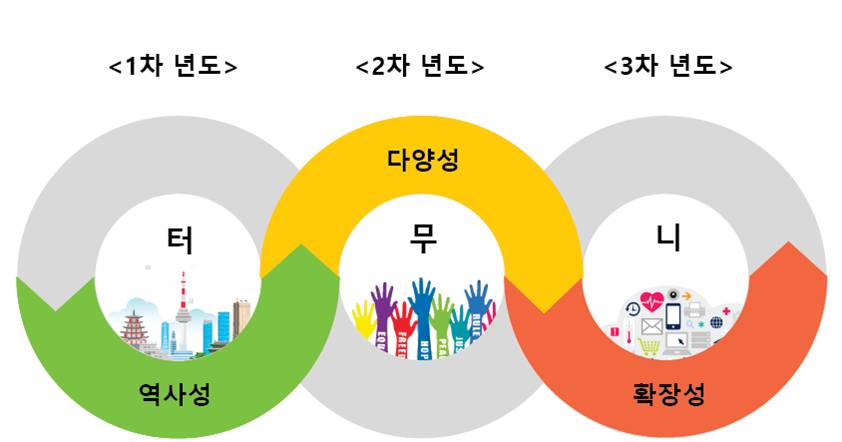
Step by Step Goals of Human City Yongsan_Project
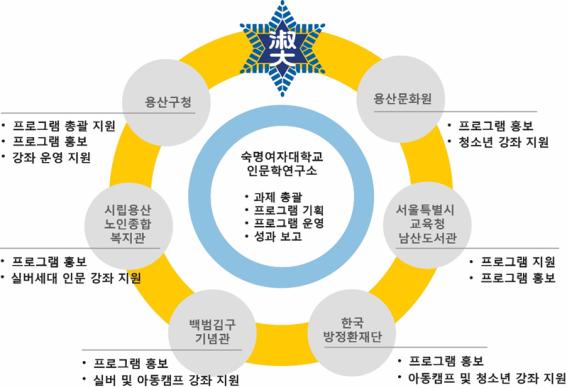
Promotional Scheme of Human City Yongsan_Project
On April 4, 2019, the Sookmyung Research Institute of Humanities signs a research agreement with Incheon Community Media Center
The Sookmyung Research Institute of Humanities and Incheon Community Media Center of Community Media Foundation signed an MOU for the research and development of the “Media Empathy” project education program. The media empathy project is aimed at citizens who are vulnerable to media use, such as the developmentally disabled and the elderly. The project is expected to provide understanding of media in various languages and enable people with and without disabilities to sympathize and communicate with each other.
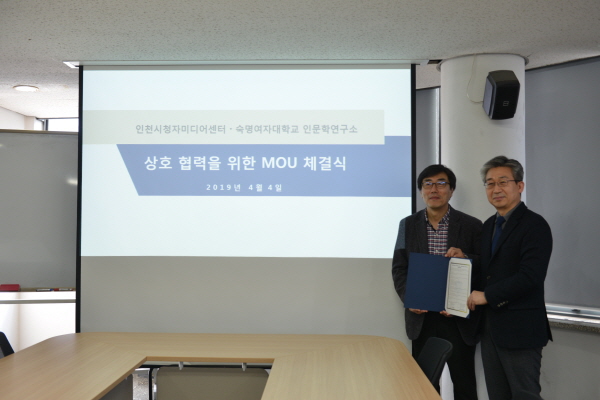
<MOU between Sookmyung Research Institute of Humanities and Incheon Community Media Center>
The biggest achievement in the first half of 2020!
The Sookmyung Research Institute of Humanities made the final selection for the “2020 Humanities Korea Plus (HK+) Project” offered by the National Research Foundation of Korea. Through this selection, the Sookmyung Research Institute of Humanities is to receive approximately 8.4 billion won, 1.2 billion won per year, over the next 7 years in funding. With this, it plans to focus on the ever deepening hate issues in our society based on the theme of “The Age of Hatred, and Response by Humanities Studies.”




![[Zoom In] 숫자로 알아보는 숙명여대 인문학연구소의 이모저모](/_attach/old/dext5editordata/2020/05/20200528_184206482_99464.jpg)